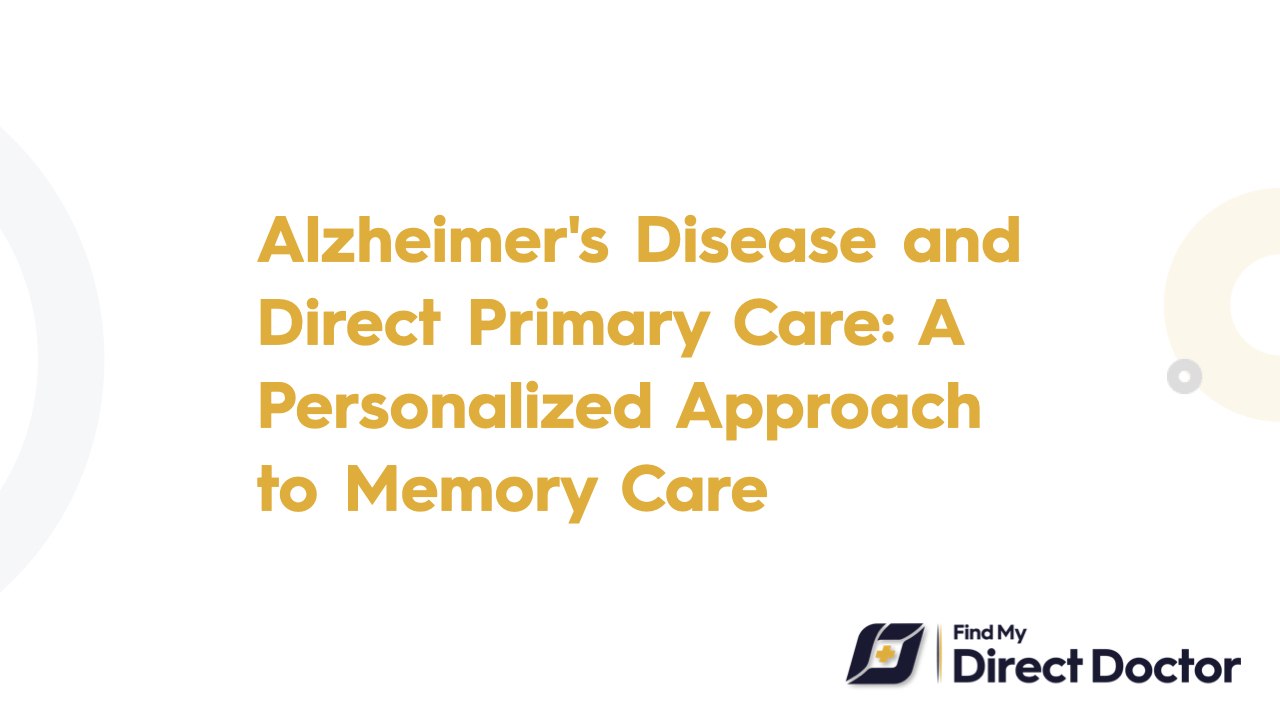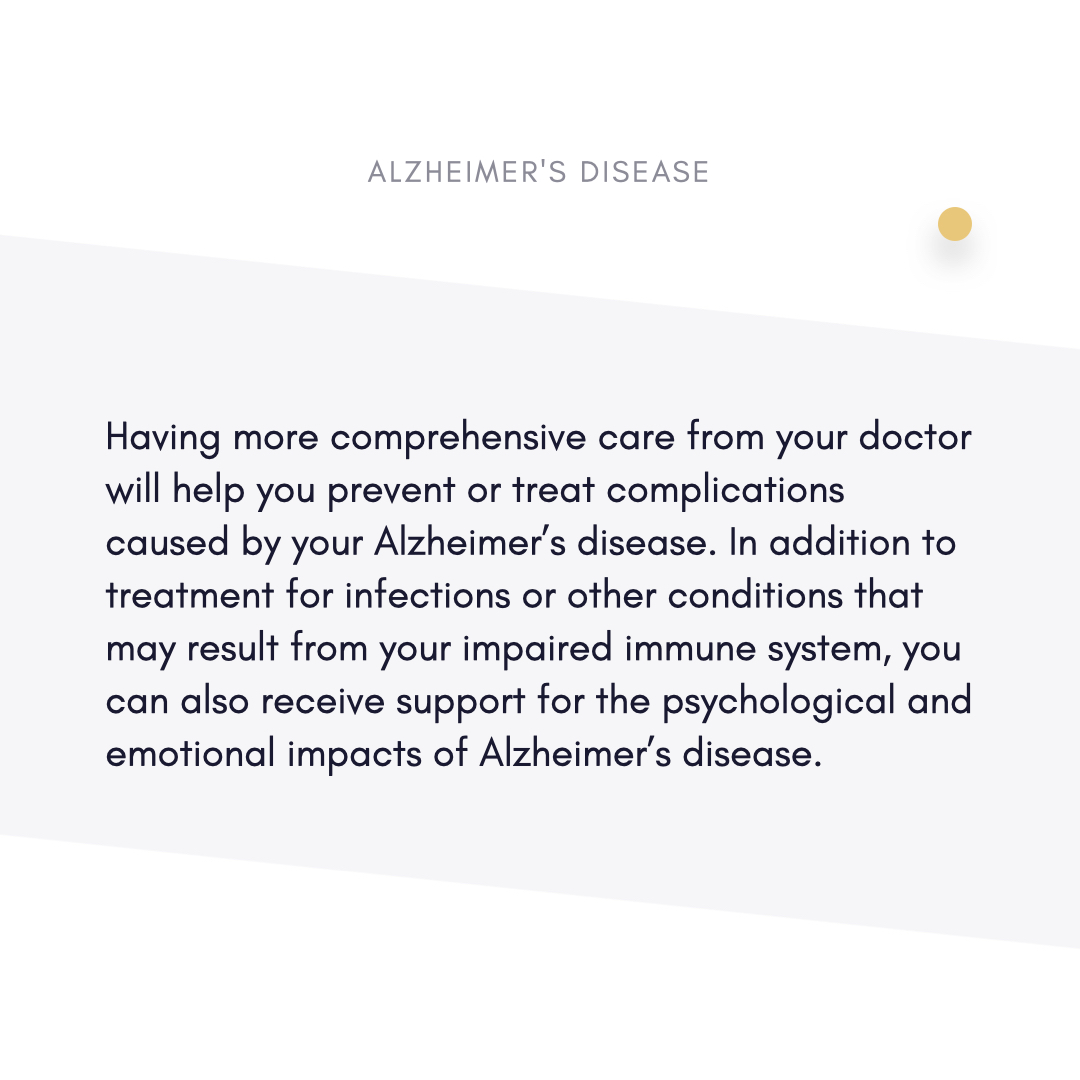Alzheimer's Disease and Direct Primary Care (DPC): Compassionate, Continuous Care for Cognitive Health
With memory loss, cognitive decline, and behavioral changes brought on by Alzheimer's disease—a progressive neurodegenerative condition—patients and their families are profoundly affected. Traditional healthcare suffers with limited caregiver support, hurried visits, and disjointed treatment all around. Direct Primary Care (DPC) presents a transforming solution with individualized, easily available, continuous treatment that stresses quality of life, slows down disease progression, and helps families through all phases.

Understanding Alzheimer's Disease: Principal Difficulties
- Symptoms include memory loss, confusion, trouble with daily chores, mood swings, declining communication
- Age, genes (e.g., APOE-e4), cardiovascular disease, lifestyle choices define risk factors
- Complications include wandering, malnutrition, infections, burnout of caregivers
DPC Improves Alzheimer's Care
A membership model (USD50–USD200/month), Direct Primary Care (DPC) grants unrestricted access to a primary care physician. For families and individuals dealing with Alzheimer's disease:
- Not waiting for urgent behavioral or cognitive issues
- Clear pricing for labs, drugs, and specialist coordination
- Medical, psychological, and emotional support combined in holistic treatment
Early Detection and Preventive Monitoring
- Montreal Cognitive Assessments (MoCA) or yearly Mini-Mental State Exams (MMSE)
- Lab work: Rule out with reasonable tests reversible causes (e.g., B12 deficiency, thyroid problems)
- MRI/CT referrals paid for at cash-pay rates help to verify diagnosis
Customized Treatments Plans
Using Alzheimer's Association recommendations, DPC combines:
- Managing medications: At wholesale rates, cholinesterase inhibitors either rivastigmine (Exelon) or donepezil (Aricept)
- Memantine (Namenda) is NMDA antagonist meant to slow down cognitive decline
- Non-pharmacological approaches: Cognitive stimulation includes puzzles, music therapy, art projects, and exercise regimens
- Changes in lifestyle: Mediterranean diet, exercise, good sleeping hygiene
Supporting and Educating Caregivers
- Sessions of instruction: Instruct in safe home modifications, stress management, and communication styles
- Affordable referrals to adult daycares or in-home assistants help with respite care coordination
- Resources about mental health: Therapy for depression or anxiety related to caregivers
DPC's Advantage for Alzheimer's Patients
Enhanced Accessibility and Continuity of Service
- Longer visits and frequent follow-ups made possible by lower patient-to-physician ratios
- By means of proactive UTI or fall prevention, avoid ER visits (USD2,000+ per trip)
Economical Remedies
- Medications: USD15/month donepezil instead of more than USD100 retail
- Labs/imaging: USD50 vitamin panels
Caregiver-Centric Methodologies
- Coordinated communication among specialists (neurologists, geriatricians), doctors, and caregivers
- Consistent support, education, and respite resources help to lower caregiver load
Personalized DPC Alzheimer's Management
Individualized care is stressed by the Alzheimer's Association. DPC uses:
- Care Coordination:
- Dedicated care managers work with doctors to design customized treatments covering emotional, social, and medical aspects
- Advance care preparation: Match treatments with goals and values of patient/family life
- Improved Interaction:
- Regular check-ins allow instant care plan modifications based on symptom changes
- Family engagement: Frequent updates and instruction for caregivers enhances home care
- Comprehensive Interventions:
- Non-pharmacological treatments include structured routines, cognitive stimulation, art/musical therapy
- Safety plans include nutrition plans, fall-proofing homes, and GPS trackers for wandering
Personal Success Stories from Real Life
- Case 1: Margaret, 78, delayed nursing home placement with DPC's caregiver training and medication changes for eighteen months
- Case 2: Using DPC to aggressively manage infections and falls, the Lee Family saved USD8,000/year on ER visits
FAQs: DPC and Alzheimer's Disease
- Q: Can DPC write prescriptions for Alzheimer's meds?
A: Yes! DPC doctors coordinate specialist prescriptions, manage donepezil and memantine
- Q: How does DPC respond to wandering and other crises?
A: Same-day direction on Safe Return programs, GPS devices, and emergency contacts
- Q: Does DPC provide in-house home care?
A: DPC negotiates cash-pay discounts with local agencies for care assistants
Why DPC Is Changing Alzheimer's Treatment
- Customized plans adapt to disease progression, reducing trial-and-error treatment
- Mental health tools and education help lower caregiver burnout rates by 30% (per studies)
- Reasonable prices guarantee families can afford long-term care without financial burden
How DPC Especially Improves Alzheimer's Care
DPC's model follows National Institute on Aging (NIA) recommendations by:
- Collaborative care: Coordination among primary care, neurologists, and social workers
- Prevention focus: Early interventions to reduce hospitalizations and cognitive decline
- Trust-building: Continuity with one physician reduces stress for families
Use DPC to Confidently Navigate Alzheimer's
No family should travel the road that Alzheimer's disease presents alone. DPC gives you:
- Tailored care plans covering psychological and medical needs
- Easy access to consistent help to reduce crises and improve quality of life
- All-encompassing strategies combining cognitive stimulation, caregiver well-being, and lifestyle support






